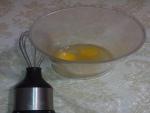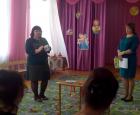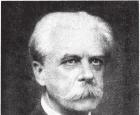Неопределенный артикль a an для детей упражнения. Артикль a, an, the в английском языке: примеры употребления, правило
Articles
1) Put in a/an or the where necessary
1. I wrote to her but ... letter never arrived.
2. Britain is ... island.
3. What is ... name of this village?
5. Montreal is ... large city in ... Canada.
6. What is ... largest city in ... Canada?
7. "What time is it?" "I don"t know. I haven"t got ... watch."
8. When I went to ... Rome, I stayed with ... Italian friend of mine.
9. You look very tired. You need ... holiday.
10. Don"t sit on ... floor. It"s very dirty.
11. "Let"s go to ... restaurant this evening." "That"s ... good idea. Which restaurant shall we go?"
12. Can you turn on ... radio, please? I want to listen to some ... music.
13. Tom is in ... bathroom. He"s having ... bath.
14. This is ... nice room, but I don"t like ... colour of ... carpet.
15. We live in ... old house near ... station. It"s ... two miles from ... center.
2) Поставьте a / an или the , где необходимо:
1. I turned off light, opened door and went out.
2. Excuse me, can I ask question, please?
3. Alan is best player in our football team.
4. How far is from here to airport?
5. Enjoy your holiday and don"t forget to send me postcard!
6. Have you got ticket for concert tomorrow night?
7. What is name of director of film we saw last night?
8. Yesterday I bought jacket and shirt. Jacket was cheap but shirt was expensive.
9. Peter and Mary have two children, boy and girl. Boy is seven years old and girl is three.
1. Rome is________________ of Italy.
2. When we were in London, we stayed at ___________.
3. Can you ride ___________?
4. What"s that man doing on _________ of that house? Is he repairing something?
5. We went to the theatre last night but _________ wasn"t very good.
6. Do you think English is _________________ for people to learn?
7. "Would you like ________?" "No, thanks. I don"t smoke".
8. "Where is jack?" "He"s in ________. He"s cooking something."
9. Excuse me, what time is___________ to London?
10. It"s ______________ today. Let"s go out.
Ответы :
1. I wrote to her but the letter never arrived.
2. Britain is an island.
3. What is the name of this village?
5. Montreal is a large city in Canada.
6. What is the largest city in Canada?
7. "What time is it?" "I don"t know. I haven"t got a watch."
8. When I went to Rome, I stayed with an Italian friend of mine.
9. You look very tired. You need a holiday.
10. Don"t sit on the floor. It"s very dirty.
11. "Let"s go to a restaurant this evening." "That"s a good idea. Which restaurant shall we go?"
12. Can you turn on the radio, please? I want to listen to some music.
13. Tom is in the bathroom. He"s having a bath.
14. This is a nice room, but I don"t like the colour of the carpet.
15. We live in an old house near the station. It"s two miles from the center.
2) Поставьте a / an или the , где необходимо:
1. I turned off the light, opened the door and went out.
2. Excuse me, can I ask a question, please?
3. Alan is the best player in our football team.
4. How far is from here to the airport?
5. Enjoy your holiday and don"t forget to send me a postcard!
6. Have you got a ticket for the concert tomorrow night?
7. What is the name of the director of the film we saw last night?
8. Yesterday I bought a jacket and a shirt. The jacket was cheap but the shirt was expensive.
9. Peter and Mary have two children, a boy and a girl. The boy is seven years old and the girl is three.
Надо закончить предложения, используя артикли плюс данные слова или пары слов:
Bicycle, capital, cigarette, play, difficult language, kitchen, nice day, next train, roof, small hotel.
1. Rome is________________ of Italy.
2. When we were in London, we stayed at ___________.
3. Can you ride ___________?
4. What"s that man doing on _________ of that house? Is he repairing something?
5. We went to the theatre last night but _________ wasn"t very good.
6. Do you think English is _________________ for people to learn?
7. "Would you like ________?" "No, thanks. I don"t smoke".
8. "Where is jack?" "He"s in ________. He"s cooking something."
9. Excuse me, what time is___________ to London?
10. It"s ______________ today. Let"s go out.
Чтобы закрепить теорию употребления артиклей мы должны поработать с материалом практической части. Для этого приглашаем вас на курсы английского Левобережной
Для того, чтобы правила усваивались более эффективно и не вызывали чувства однообразия, мы поделили упражнения на 5 групп.
Если вы не готовы к тесту вам сюда:
Артикли в английском языке — использование и употребление
5 групп упражнений на артикли английского языка:
Первая группа – это артикль + слово .
1. ___ arm 9.___old woman 17.___ hour
2. ___ animal 10.___theatre 18.___ insect
3. ___ seaside 11.___orchid 19.___North Pole
4. ___actress 12. ___ jungle 20.___ finger
5. ___ dog 13. ____ billion 21.___ ant
6. ___ Netherlands 14. ____ monkey 22. ___ woman
7. ___ actor 15. _____ earache 23. ___eagle
8. ___ iPhone 16. _____ Pacific Ocean 24. ___e-book
Вторая группа – это словосочетания.
1. Listen to ___ radio 5. History of ___ media
2. ___ romance of ___ busy broker 6. As___ result of my work
3. ___ Christmas Presents 7.___adventure of her husband
4. ___ great fire of London 8.___busy day
Третья группа – это предложения, в которые нужно вписать артикль the или же ничего .
1. In ___last two years things have got very tight.
2. ___ Normans also brought with them ___ French language.
3. All she knew was that he was ___ very ill and they were completely out of ___money.
4. She was just eleven years of age, and ___ moon was shining brightly in ___ gardens of ___ palace.
5. Please, state your destination clearly and have ___ exact fare ready.
Четвертая группа – это предложения, в которые нужно вписать артикли a/an или the.
1. You know, it’s ___ very expensive smartphone.
2. Korinna is ___ doctor.
3. She paid fifty euro of rent ___ month.
4. Give ___ fool горе enough, and he will hang himself.
5. ___ train leaves tomorrow at three o’clock.
6. I am ___ important woman now.
7. Their stems lay in ___ water, on which there floated ___ large tulip petal.
8. In ___ small town ___ man stole some money from ___ house.
9. ___ man wrote a story and sent it to ___ publishing house.
10.___ driver in ___ American bus is ___ unique figure.
Пятая группа – вписать в предложения артикли a/an, the или оставить нулевой артикль.
1. ___bird in___hand is worth two in___bush.
2. In autumn when it is raining hard ___ umbrella is necessary.
3. ___ dogs bark, but ___ caravan goes on.
4. What is ___ Miracle’s Cost?
5. One day he saw something in ___ newspaper about ___ fair in ___park near his house.
6. ___ train leaves tomorrow at three o’clock.
7. ___ goal of this course is to help you become ___ better teacher.
8. So young Peter Munk used to ___sit all through ___ week tending ___ wood-kiln.
9. He was ___ handsome, ___strong and ___very smart.
10. ___enemy will agree, but ___ friend will argue.
11. They told in ___ newspapers that ___ big stage-coach was lifted off ___ road and thrown aside like ___ rag.
12. Late one night ___ shoemaker sat cutting his leather with ___ snip, snip, snap, watched by his wife and watched by his cat.
13. Big Ben is ___bell in ___ clock tower in London.
14. Whidbey Island may be only ___ ferry ride from Seattle, but it’s ___ world apart.
15. On January 26, 1948, ___ man posing as ___ public health official arrives at ___ bank in Tokyo.
16. ___ beggar found ___ leather purse that someone had dropped in ___ marketplace.
17. ___ father came home from ___ long business trip to find his young son riding ___ brand new bike.
18. Pure white snow and ice covered ___ Earth for as far as he could see.
19. John had been taught to carry his Master’s dinner in ___ basket, every day, to ___ place where he worked.
20. Upon arriving home in eager anticipation of ___ leisurely evening, ___ husband was met at the door by his sobbing wife.
А теперь давайте проверим свои ответы!
 Answers:
Answers:
1) an; 2) an;3) the; 4) an; 5) a; 6) the; 7) an; 8) an; 9) an; 10) the; 11) an; 12) the; 13) a; 14) a; 15) an; 16) the; 17) an; 18) an; 19) the; 20) a; 21) an; 22)a; 23) an; 24) an.
1) the; 2) the,a; 3) the; 4) the; 5) the; 6) a; 7) the; 8) a.
1) the; 2) the,the; 3) 0,0; 4) the,the,the; 5) the; 6) 0, the.
1) a; 2) a; 3) a; 4) a; 5) the; 6) an; 7) the, a; 8) a,a,a; 9)a, the; 10) the, an,a.
1)A,the,the ; 2) an; 3) the,the; 4) the; 5)the,a,the; 6) the; 7) the, a;
8) 0, the,the; 9) 0,0,0; 10)an,a; 11)the,the,the,a; 12) a,a;
13) a,the; 14)a,a; 15)a,a,a; 16)a,a,the; 17)a,a,a;
18) the; 19)a,the; 20)a,the.
После проверки результатов своих тестов, мы видим на что нужно сделать еще раз упор и что повторить. Команда NES желает вам плодотворного дня и приглашает на английский по выходным в Киеве.
Привет! Мы уже много знаем об английской грамматике , о ее правилах и исключениях. Пришло время перейти на новый, более сложный уровень и начать изучать употребление артиклей в английском языке. Русскоязычным вообще тяжело дается эта тема, так как мы не понимаем, для чего необходимо использовать артикли в английском языке, когда казалось, и так все понятно. Надеюсь, прочитав данную статью, вы убедитесь, в чем их задача. Классификация артиклей
В русском языке вообще не существует такой части речи, как артикль. Потому что в родном языке мы можем менять конструкции местами для придания оттенков или ударения на определенной фразе, но смысл предложения останется тем же. В английском же, как мы знаем, строго фиксирован порядок единиц, и артикли ставятся перед некоторыми словами в строго определенных случаях. Какие это случаи мы сегодня узнаем.
Для начала, вам необходимо уяснить следующее:
A/an — от one (один)
The — от this / that (этот, это, эта и др.)
Запомнив это, вам станет понятно, почему «a/an «используется лишь в единственном числе.
В английском языке понятие артикля связывают с категорией определенности. Основное правило употребления в упрощенной форме можно свести к следующему: если идет речь о предмете, который известен говорящему, то перед словом, указывающим на этот предмет ставят «the» — определенный артикль, а неопределенные «a/ an» — если говорится о предмете неизвестном до момента речи.
- We have bought the dog that we saw yesterday. — Мы купили собаку, которую вы вчера видели (Говорится о конкретной, определенной собаке — той, которую видели вчера).
- We have bought a dog. — Мы купили собаку (Вы заявляете новость, то есть в первый раз сообщаете о собаке).
О том ставить или не ставить «a/ an» или «the», и запомнить правила, вам помогут эти 4 вопроса и простая схема, которая наглядно объясняет каждое правило:
- В каком числе слово?
- Это слово относится к категории исчисляемых?
- О нем шла речь ранее? (определенный/неопределенный)
- Речь идет о чем-либо обобщенном?
Как видите, согласно правилу в английском «a/an » используется только с «неизвестным» показателем, если оно исчисляемое и в единственном числе. А «the» — с «известным» исчисляемым словом в любом числе. Но вы также заметили, что если речь идет о конкретном, обобщенном предмете, то они вообще не используются, это так называемый «нулевой артикль». Разберем эти случаи более конкретно.
Правило использования нулевого артикля
Есть такие случаи, когда вместо артиклей применяется местоимение «some» или вообще не ставится ничего. Если к слову в русском языке можно поставить одно из слов по смыслу — какие-то, несколько, какие-нибудь, некое количество, то в английском языке к соответствующему существительному добавляются местоимения «some/any ».
А когда в нашем языке невозможно добавить ни одно слово к соответствующему сущест., то в английском предложении тоже ничего не ставится: I bought some oranges yesterday — Вчера я купил апельсины (некоторое количество, несколько).
Делитесь статьей с друзьями.
Полезное видео когда не нужны артикли
Выбор во многом зависит от контекста. В этих упражнениях подобраны случаи, когда выбор более-менее однозначен. Пройдите упражнения на артикли, чтобы закрепить знание темы.
Упражнение 1. Артикль A или AN?
Выбор между вариантами неопределенного зависит от первого звука следующего слова. Перед согласным используем a , перед гласным an – это позволяет артиклю не сливаться со словом.
Показать ответы с переводом
1) an apple – яблоко
2) a board – доска
3) a nail – гвоздь
4) an orange umbrella – оранжевый зонт
5) a sparrow – воробей
6) a history class – урок истории
7) an actor – актер
8) a university – университет (слово “university” начинается с согласного звука)
Упражнение 2. Артикль THE или A\AN?
Выбор между артиклями и a\an в большинстве случаев зависит от контекста. В этом упражнении приведены случаи, когда из контекста понятно, какой именно нужен артикль.
Показать ответы с переводом
- I need to sign this. Have you got a pen by chance? – Мне нужно это подписать. У вас случайно нет ручки?
- This is the pen that Ernest Hemingway wrote his stories with. – Это ручка, которой Эрнест Хемингуэй писал свои рассказы.
- We met on the day when the war started. – Мы познакомились в день, когда началась война.
- That’s a hard task, I’ll need a day or two to finish it. – Это сложное задание, мне понадобится день или два, чтобы его закончить.
- I’ve watched the movie you told me about. – Я посмотрел фильм, о которым ты мне говорил.
- I had a couple of hour to kill, so I decided to go watch a movie . – Мне нужно было скоротать пару часов, поэтому я решил сходить посмотреть какой-нибудь фильм.
Упражнение 3. Нулевой артикль, артикль THE или A\AN?
В этом упражнении вам нужно выбрать между артиклем the, артиклем a\an и . Если артикль нулевой – просто оставьте пропуск в тексте пустым.
Показать ответы с переводом
- You have an hour to finish your essay. – У вас есть час, чтобы закончить ваше сочинение.
- A year has passed but his business still has the same problem. – Прошел год, но у его бизнеса все та же проблема.
- We have a lot in common. – У нас много общего.
- What do you want to buy? We’ve got sugar , oil , a sack of rice, a few magazines. – Что вы хотите купить? У нас есть сахар, масло, мешок риса, несколько журналов.
- I agree that knowledge is power but the proverb is not about the knowledge of all seasons of “The Simpsons”. – Я согласен, что знание – сила, но эта поговорка не о знании всех сезонов “Симпсонов”.
Упражнение 4. Правильно ли выбран артикль?
В некоторых из этих предложений неправильно использован артикль. Отметьте, какие предложения соответствуют правилам грамматики, а какие нет.
Выполните следующие упражнения, проверьте свои ответы
1. Choose the correct variant.
I. …Smiths have a dog and a cat.a) … b) The c) A
2. He knows how to work on … computer.
a) a b) an c) …
3. She was the first woman to swim across … English Channel.
a) a b) … c) the
4. Go down … Kingston Street and turn left into Oxford Street.
a) the b) a c) …
5. I don’t like milk in … tea.
a) … b) the с) а
6. At the end of… busy day, sleep is the best way to restore your energy.
a) the b) a c) …
7. We’ll go for a walk if … weather is fine.
a) a b) … c) the
8. Could you give me … information I asked for in my letter?
a) the b) … c) a
9. …war is a terrible thing.
a) The b) … с) А
10. I spent … very interesting holiday in England.
a) the b) a c) …
2. Fill in the correct article.
2. I have ... sister. My ... sister is ... teacher. My sister’s ... husband is ... pilot.
3. I have no ... car.
4. She has got ... terrible … headache.
5. They have ... dog and two ... cats.
6. My ... cousin says he is going to be ... manager one ... day.
7. Would you like ... apple?
8. This is ... tree. ... tree is green.
9. I can see three ... children. ... children are playing in … yard.
10. I have ... car. ... car is white. My ... friend has no ... car.
3. Fill in the articles in the proverbs if necessary.
1. … apple … day keeps … doctor away.2. … appetite comes with eating.
3. … good beginning makes … good ending.
4. … bird in … hand is worth two in … bush.
5. Among … blind … one-eyed man is king.
6. … brevity is … soul of wit.
7. … cat has nine lives.
8. … charity begins at … home.
9. … clothes make … man.
10. … curiosity killed … cat.
Правильные ответы:
1. Выберите правильный вариант.
1. b | 2. a | 3. c | 4. c | 5. a | 6. b | 7. c | 8. a | 9. b | 10. b2. Вставьте правильный артикль.
1. “Is this your ... friend?” - “No, it isn’t my ... friend, it is my sister”.2. I have a sister. My ... sister is a teacher. My sister’s ... husband is a pilot.
3. I have no ... car.
4. She has got a terrible … headache.
5. They have a dog and two ... cats.
6. My ... cousin says he is going to be a manager one ... day.
7. Would you like an apple?
8. This is a tree. The tree is green.
9. I can see three ... children. The children are playing in the yard.
10. I have a car. The car is white. My ... friend has no ... car.
3. Вставьте артикли в пословицах, если требуется.
1. An apple a day keeps the doctor away.2. The appetite comes with eating.
3. A good beginning makes a good ending.
4. A bird in the hand is worth two in the bush.
5. Among the blind the one-eyed man is king.
6. Brevity is the soul of wit.
7. A cat has nine lives.
8. Charity begins at home.
9. Clothes make the man.
10. Curiosity killed the cat.








 Внедрение и использование УМК «Изучаем русский язык» в двуязычной образовательной среде
Внедрение и использование УМК «Изучаем русский язык» в двуязычной образовательной среде Система образования в индии как фундамент знаний и жизни
Система образования в индии как фундамент знаний и жизни Роман Вишневский – трейдер и владелец брокерской компании
Роман Вишневский – трейдер и владелец брокерской компании Николай Кольцов – биолог из будущего
Николай Кольцов – биолог из будущего